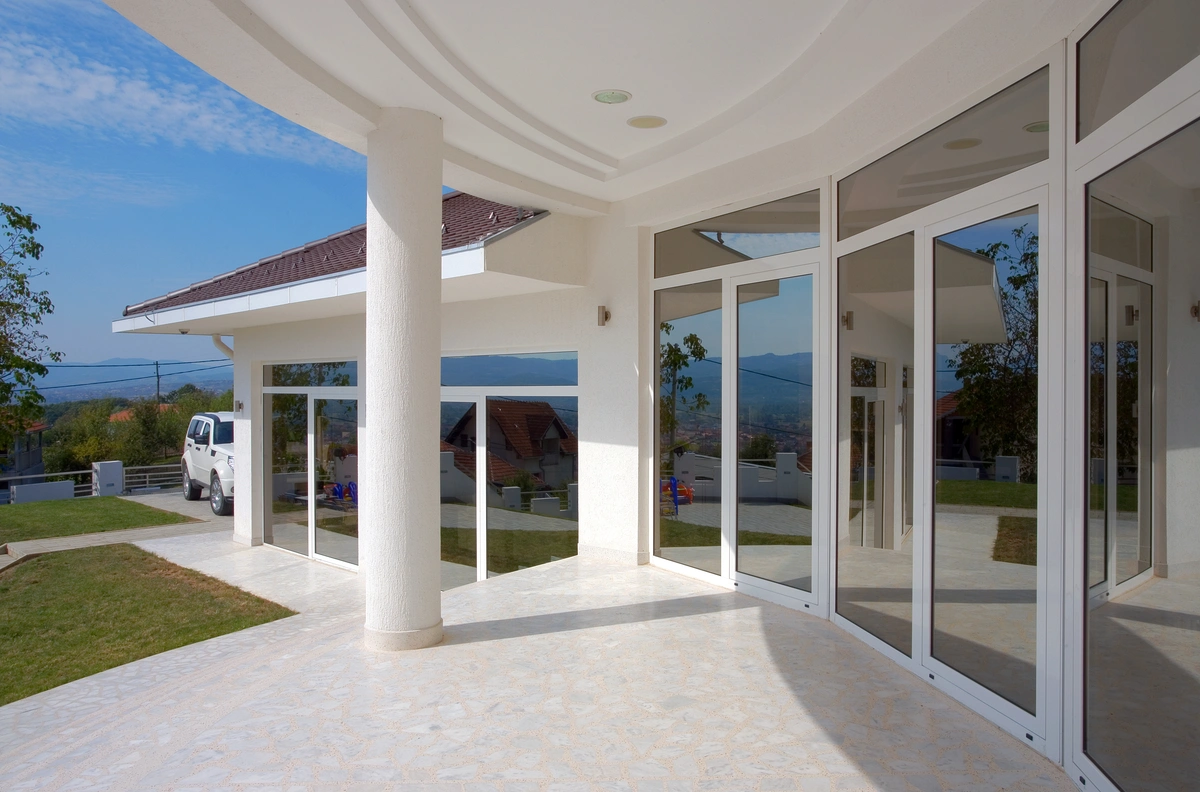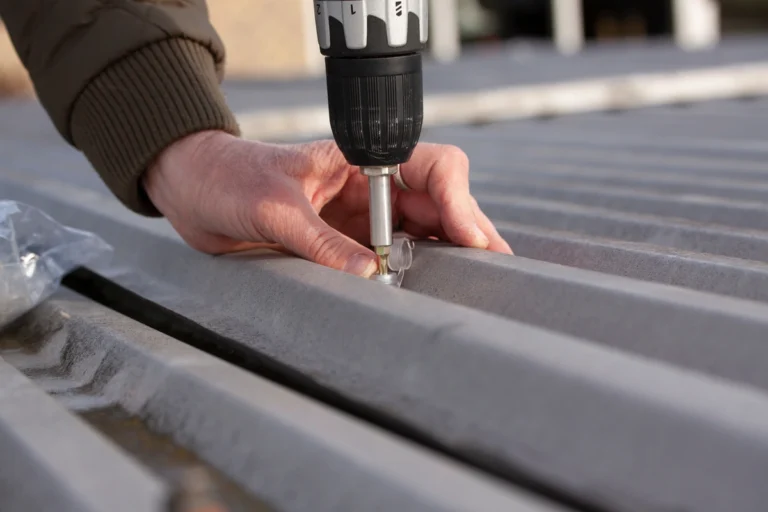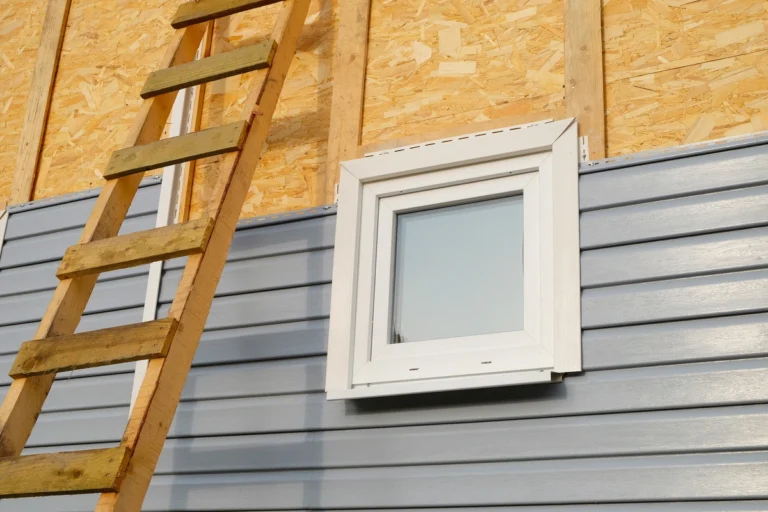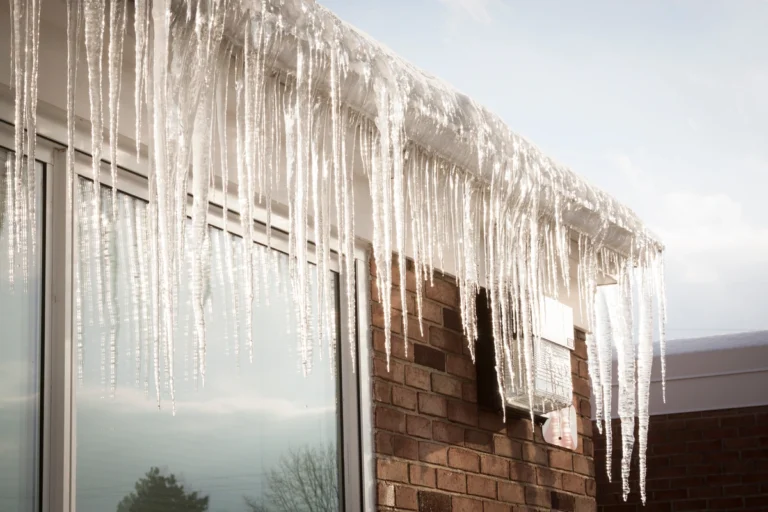Windows are often described as the eyes of a home, offering a glimpse into its soul and connecting its interior with the outside world. Among the myriad options available in the realm of windows, large windows stand out for their ability to transform a space, flooding it with natural light and framing picturesque views. In this guide, we’ll help you decide if large windows are right for you by exploring their:
- Dimensions
- Advantages
- Installation costs
- Durability
- Energy efficiency
Understanding Window Sizes: What Constitutes a Large Window?
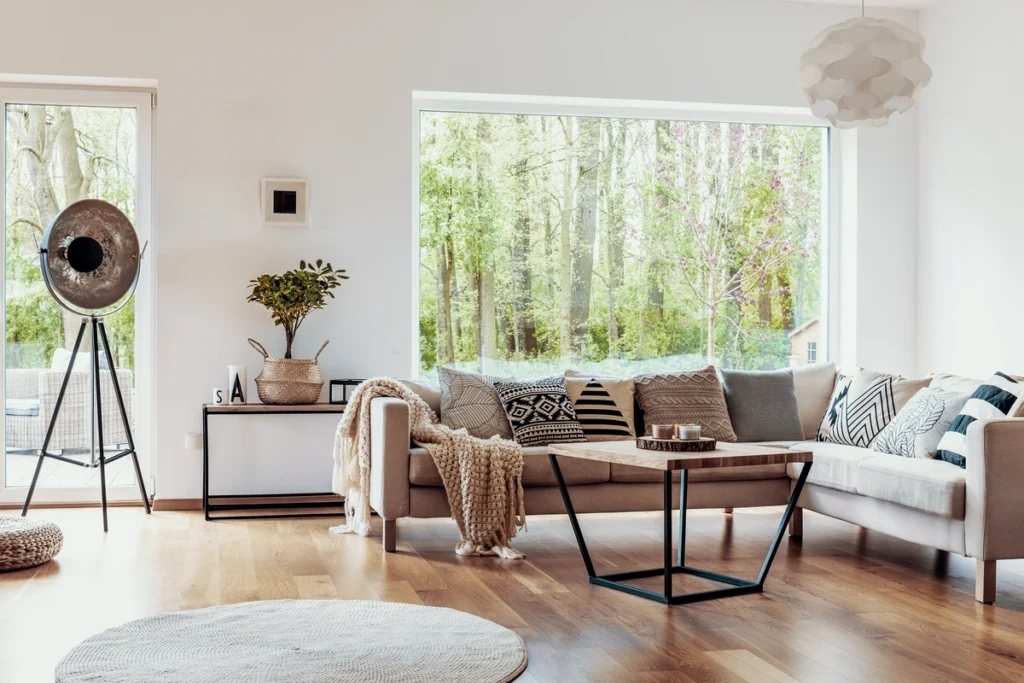
Windows come in various sizes, each serving different aesthetic and functional purposes. Standard window sizes typically range from small to medium, catering to traditional architectural norms. However, large windows, by definition, transcend these norms, boasting expansive dimensions that significantly enhance a room’s ambiance and visual appeal.
While there’s no universal definition of a large window, they generally exceed the dimensions of standard windows, spanning from floor to ceiling or covering a considerable portion of a wall. These windows often incorporate sliding, picture, or bay configurations, maximizing natural light penetration and offering panoramic views of the surroundings.
4 Benefits of Installing Large Windows
There are lots of reasons why homeowners choose to install larger windows in their homes. Here are just a few:
1) Abundant Natural Light:
Large windows serve as conduits for sunlight, illuminating interiors and reducing the need for artificial lighting during the day. This not only enhances the visual appeal of a space but also contributes to energy savings.
2) Expansive Views:
One of the most significant advantages of large windows is their ability to frame breathtaking vistas, seamlessly integrating the outdoors with indoor living spaces. Whether overlooking a lush garden, sprawling cityscape, or serene waterfront, these windows elevate the aesthetic charm of any room.
3) Enhanced Ventilation:
In addition to light, large windows facilitate better airflow, promoting natural ventilation and creating a more comfortable living environment. This is particularly beneficial during the warmer months, allowing residents to enjoy fresh air without compromising security.
4) Architectural Statement:
Large windows serve as focal points within a room, adding a touch of drama and sophistication to its design. Whether incorporated into modern, minimalist spaces or traditional dwellings, these windows make a bold architectural statement, elevating the overall aesthetic appeal.
Reasons to Avoid Large Windows
Even windows can have downsides! Here are a few that tend to accompany the installation of a large window:
- Higher Cost: Installing large windows typically entails higher upfront costs compared to standard-sized alternatives. Factors such as custom sizing, specialized materials, and additional structural support can contribute to increased expenses.
- Privacy Concerns: While large windows offer unparalleled views, they also raise privacy concerns, especially in densely populated areas or urban settings. Strategic placement, along with the use of curtains, blinds, or frosted glass, can mitigate these concerns to some extent.
- Heat Gain/Cold Drafts: Improperly insulated large windows may lead to heat gain in summer and heat loss in winter, resulting in increased energy consumption for heating and cooling. Opting for energy-efficient glazing and proper insulation can mitigate these issues.
- Maintenance Challenges: Cleaning and maintaining large windows can be more labor-intensive compared to smaller counterparts, especially for windows located in hard-to-reach areas or at higher elevations.
Cost Considerations: How Much Does It Cost to Install Large Windows?
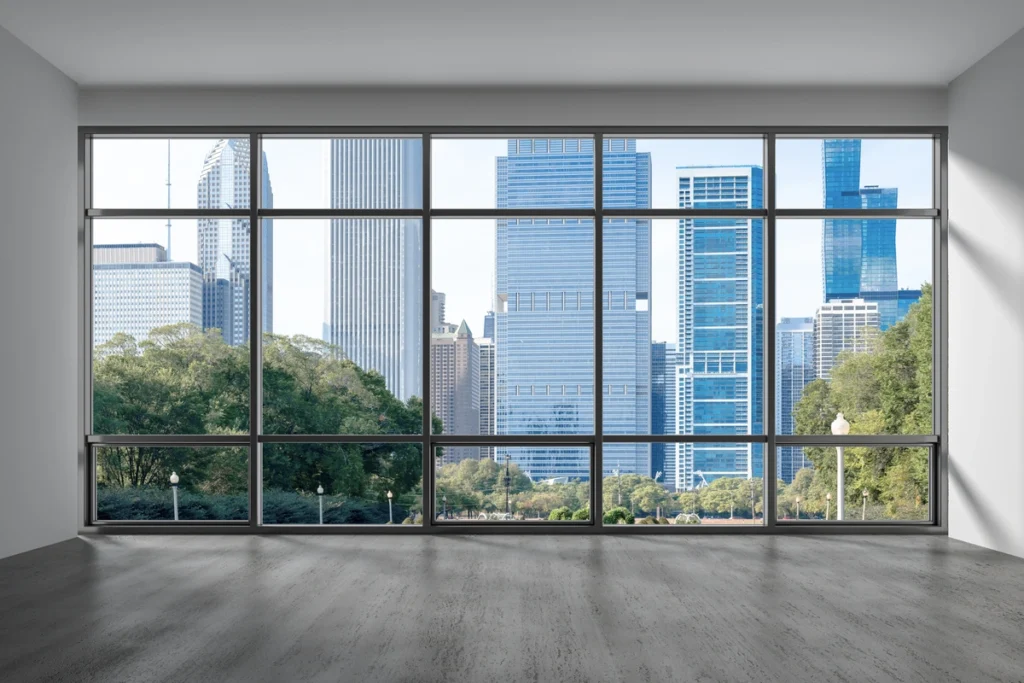
The cost of installing large windows varies depending on several factors, including size, materials, installation complexity, and geographical location. On average, homeowners can expect to pay anywhere from $800 to $2,500 per window for standard-sized installations. However, large windows may command higher price tags, ranging from $1,500 to $5,000 or more per window.
Factors influencing the cost of large window installation include:
- Size and Configuration: Larger windows typically require more materials and labor, resulting in higher overall costs. Additionally, complex configurations such as floor-to-ceiling or custom-shaped windows may incur additional expenses.
- Materials: The choice of materials significantly impacts installation costs. While vinyl and aluminum windows tend to be more affordable, options like wood or fiberglass may come with a higher price tag but offer superior aesthetics and durability.
- Labor Costs: Professional installation is crucial for ensuring proper fit, sealing, and weatherproofing of large windows. Labor costs vary based on factors such as contractor expertise, project scope, and local labor rates.
- Structural Modifications: Installing large windows may require structural modifications to accommodate their weight and size. This can include reinforcing walls, headers, or foundations, adding to the overall project cost.
- Energy Efficiency Upgrades: Opting for energy-efficient glazing, such as double or triple-pane windows, Low-E coatings, or gas fills, can increase upfront costs but lead to long-term energy savings.
Why Professional Installation Is Essential
While DIY enthusiasts may be tempted to tackle window installation themselves, entrusting the task to a professional window installer offers numerous benefits:
Expertise and Experience:
Professional installers possess the requisite knowledge, skills, and experience to ensure proper installation, minimizing the risk of errors or structural damage.
Customization and Precision:
Professional installers can tailor solutions to meet specific design requirements, ensuring precise fitting and alignment of large windows for optimal performance and aesthetics.
Compliance with Building Codes:
Professional installers are well-versed in local building codes and regulations, ensuring compliance with safety standards and permitting requirements.
Warranty Coverage:
Many window manufacturers offer warranties that may be voided if windows are improperly installed. Professional installation ensures that warranties remain valid, providing peace of mind for homeowners.
Longevity of Large Windows
The lifespan of large windows varies depending on factors such as material quality, maintenance, and environmental conditions. Generally, well-maintained windows can last anywhere from 20 to 40 years or more. However, certain materials may offer superior durability and longevity:
- Vinyl Windows: Vinyl windows are prized for their durability, resistance to rot, corrosion, and pests, making them an ideal choice for long-lasting performance with minimal maintenance.
- Fiberglass Windows: Fiberglass windows boast exceptional strength and durability, outperforming other materials in terms of longevity and resistance to warping, cracking, and fading.
- Aluminum Clad Wood Windows: Combining the natural beauty of wood with the durability of aluminum cladding, these windows offer superior longevity and weather resistance, albeit at a higher price point.
Proper maintenance, including regular cleaning, inspection, and lubrication of moving parts, can extend the lifespan of large windows and ensure optimal performance over the years.
The Importance of Energy Star Rated Windows
In an era of growing environmental awareness and rising energy costs, choosing energy-efficient windows is paramount. The Energy Star program, administered by the U.S. Environmental Protection Agency (EPA), certifies windows that meet stringent criteria for energy efficiency, helping homeowners reduce energy consumption, lower utility bills, and minimize environmental impact.
Energy Star rated windows offer several benefits:
- Improved Thermal Performance: Energy Star rated windows feature advanced glazing technologies and insulated frames that minimize heat transfer, reducing energy loss and enhancing indoor comfort year-round.
- Lower Utility Bills: By reducing heating and cooling loads, energy-efficient windows help homeowners save money on utility bills, offsetting the initial investment over time.
- Environmental Sustainability: Energy-efficient windows contribute to lower greenhouse gas emissions by reducing energy consumption, thereby mitigating environmental impact and promoting sustainability.
- Enhanced Comfort and Durability: Energy-efficient windows help maintain consistent indoor temperatures, eliminating cold drafts in winter and hot spots in summer, while also reducing condensation and moisture buildup, which can contribute to mold and mildew growth.
Transform Your Home Home With New Windows
Large windows offer a myriad of benefits, from abundant natural light and expansive views to architectural elegance and enhanced ventilation. While they may entail higher upfront costs and maintenance requirements, the long-term advantages, including energy savings and aesthetic appeal, make them a worthwhile investment.By working with professional installers and opting for energy-efficient solutions, homeowners can enjoy the beauty and functionality of large windows while minimizing environmental impact and maximizing comfort and savings. Ready to get started? Reach out to the Open Box team today!
